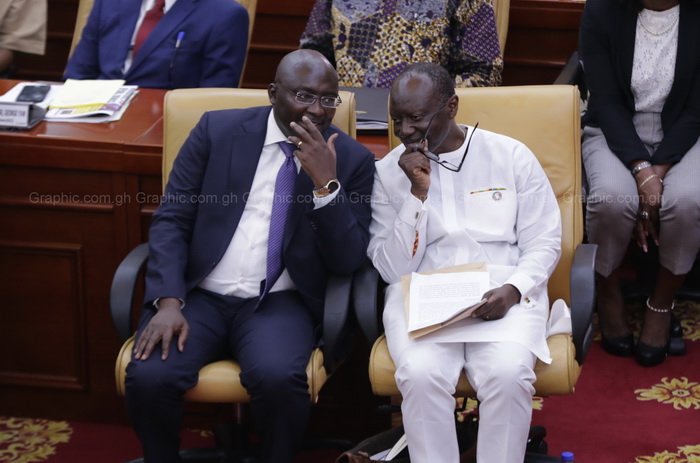
Power tariffs to go down next year
Electricity consumers are set to enjoy tariff reduction in 2018, following a review of the tariff setting methodology and cost structure of power production in the country.
Advertisement
That, however, will be subjected to approval and recommendation yet to be tabled before the Public Utilities Regulatory Commission (PURC) for consideration.
The Minister of Finance, Mr Ken Ofori-Atta, who disclosed this during the presentation of the 2018 Budget and Economic Statement to Parliament in Accra on Wednesday, said upon approval, the review would help consumers benefit from significant reduction in electricity tariffs.
“The government has reviewed the tariff setting methodology and cost structure of power production. This review has resulted in recommendations that will be made to the PURC for consideration,” he said.
Proposed tariff
Under the new proposed tariff adjustment, residential, non-residential and special load tariff (low voltage) consumers are to enjoy up to 13 per cent reduction.
Special load tariff (medium voltage), special load tariff (high voltage) and high voltage mines consumers are to benefit from 11 per cent, 14 per cent and 21 per cent reduction, respectively.
The reduction in electricity tariffs was one of the flagship campaign promises of the governing New Patriotic Party (NPP) while it was in opposition.
President Nana Addo Dankwa Akufo-Addo had indicated on several platforms that with prudent management of the economy, his government would ensure that electricity tariffs were reduced.
Tariff setting methodology
The minister stated that in fulfilment of that promise, the government had reviewed the tariff setting methodology and cost structure of power production.
“This review has resulted in recommendations that will be made to the PURC for consideration,” he said.
Mr Ofori-Atta explained that the government would next year keep electricity tariffs at affordable rates for consumers, especially industries and small businesses, through reforms and policy interventions over a two-year period.
That, he said, would be done through the collapse of the existing four-tier tariff classification of residential consumers into lifeline and non-lifeline consumers in phases.
He noted that the electricity tariff structure would also be realigned with the government’s development goals of industrial transformation, growth and job creation.
“To give relief to the poor whose individual consumption actually falls in the subsidised life-line category but who live in compound houses, the existing four-tier tariff classification of residential consumers will be collapsed into lifeline and non-lifeline consumers in phases,” he stated.
Mr Ofori-Atta observed that all too soon Ghanaians had forgotten how the menace of power cut, popularly known as ‘dumsor’ from 2012 to 2016, crippled the economy.
He suggested that the power cuts contributed to the lowest growth rate recorded in the past decade, the loss of jobs, reduced economic output and the loss of consumer and investor confidence in the economy.
“Dumsor was also compounded by high electricity tariffs, increasing the cost of doing business in the country,” he added.
The reduction in tariffs followed several calls made by power consumers, especially the business community, for the government to reduce electricity tariffs, since the high cost of power for industries was gradually collapsing their operations.
Renewable energy
Mr Ofori-Atta also said in line with the government’s goal of increasing the penetration of renewable energy in the energy mix, it was promoting the distribution of solar power for government and public buildings.
He said the government would embark on an MDA solar rooftop programme dubbed “Government goes solar” to reduce the government’s expenditure on utilities.